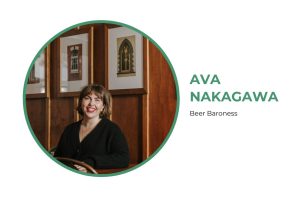As Christmas time and the holiday season rapidly approach, recruiting and training new staff is the last thing restaurants and cafés will be wanting to do. However, due to the inevitable nature of staffing fluctuations, understanding the best way to deal with and navigate the flow is essential.
Unfortunately, New Zealand’s hospitality sector has staffing issues as it is. A lack of incentive and stigma around hospitality as a career often lends itself to people pursuing hospitality jobs overseas, or short stints in hospo before moving onto something else. Additionally, seasonal recruitment is getting increasingly tricky when immigration laws for incoming tourists or workers are getting tighter and harder to negotiate.
Around the industry, there are several ways that venues cater to seasonal recruitment, some of which include hiring temporary staff members, or having call-ins, while some maintain constant levels of staffing throughout.
At Hillside Kitchen, head chef Max Gordy said that they’re lucky enough to maintain consistent levels of staff throughout the holiday period.

Max Gordy - Hillside
“Some weeks we might have to roster on an extra person or find a friend, but lucky for us we’re a pretty chappy group of people, so we’ve got a few people to ask,” explained Gordy.
“I’d say the best way to deal with seasonal recruitment is to have a plethora of people to call upon. If that doesn’t work, social media always seems to help out in dark times.”
Mark Southon at O’Connell Street Bistro said that around the Christmas period, things could get tough.
“We usually pick up extra staff for that time, but then come January, it can be hard again, and sometimes we have too many staff members,” Southon added. “We try and promote seasonal contracts if possible.”

Mark Southon - O'Connell Street Bistro
Photograph by Babiche Martens.
Southon detailed that his experience in Queenstown was similar. He said that they would have core staff throughout the year, and when winter or summer picked up, business would become busy. Thankfully, though, Southon said that with an influx of tourists and travellers, came an influx of workers, too.
The flow of business and staff is something that venues inevitably have to deal with. But often, solutions revolved around temporary workers don’t address the root problem surrounding hospitality in New Zealand. More training is required, and a gradual shift away from the mindset that hospitality doesn’t provide any opportunity.
At Logan Brown, Steve Logan said they work closely with various schools and programmes to address the inherent issues with hospitality.
“We work closely with Weltec and Cordon Bleu and get students in for work experience who often end up being permanent employees,” said Logan. “We also have several university students working for us part-time throughout the year who are looking for full-time work over the Christmas period and through January and February.”

Steve Logan - Logan Brown
Additionally, Logan described his interactions with secondary school students and how he speaks with them and paints a career in hospitality as an investment for the future.
Seasonal recruitment will always be something to consider. A blanket solution for different types and sizes of restaurants continues to allude, although there are measures one can put in place to ensure that under- or over-staffing is minimised. Some of these include understanding your staff and what they want prior to busy seasons, adequate training and incentive programmes that encourage staff to stay, and being flexible and adaptive as the business gets busier or slower.






